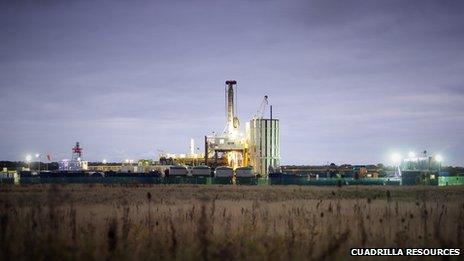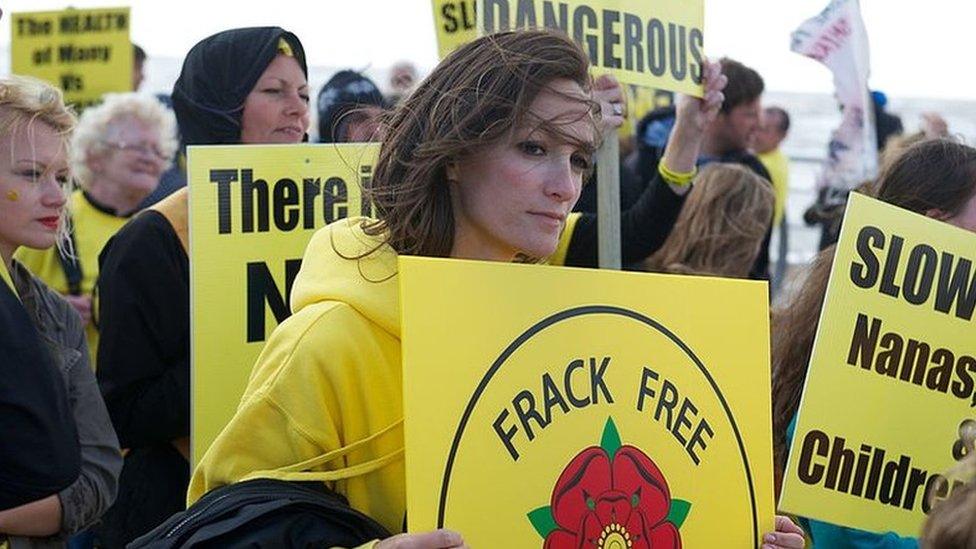New fracking rules will not apply in Scotland, UK government pledges
- Published
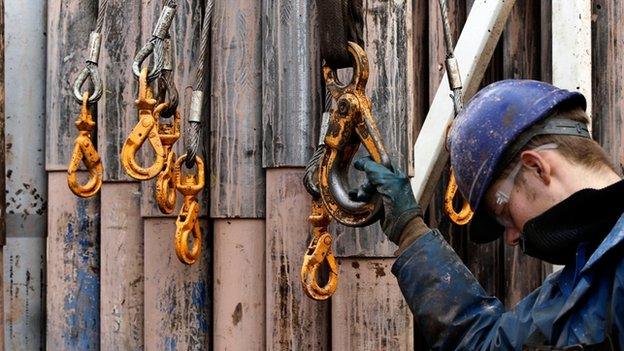
The exploration of onshore shale gas has proved controversial in the UK
The UK government has agreed to exclude Scotland from laws making it easier for fracking firms to drill for shale gas.
The Infrastructure Bill, external currently going through Westminster is set to allow underground access in England, Wales and Northern Ireland but not Scotland.
The Scottish government, the Scottish Labour Party and the Scottish Green Party had opposed the bill which would apply to residential areas.
Scottish Energy Minister Fergus Ewing said the move made sense.
Labour MP Tom Greatrex had lodged amendments to the bill requesting that full powers over shale gas exploration be given to the Scottish Parliament ahead of the general election in five months' time.
The coalition government did not back the suggestions but instead pledged to exclude Scotland from the impending legislation.
Based on that offer the Scotland Office said "the opposition was content to withdraw its amendments".
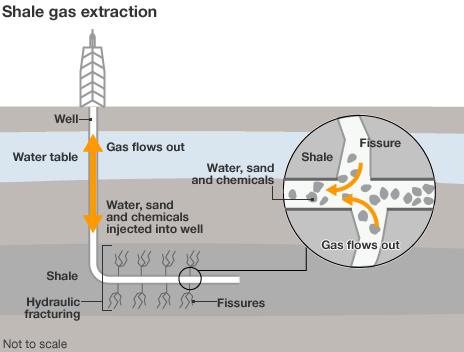
It explained: "That is not the same as devolving the power to the Scottish Parliament.
"Its effect is to leave the current arrangement in Scotland as it stands at present, so the new system for underground access will not apply."
Those opposed to fracking say it is not safe and claim it causes environmental damage and mini earthquakes.
Mr Greatrex said he had brought forward his amendments because of a "high degree of public concern".
He added that it was wrong to believe that shale gas was "some sort of energy silver bullet" which would have a "massive impact" on energy prices.
The member for Rutherglen and Hamilton West said the regulatory regime should be "robust and consistent".

What is fracking and why is it controversial?
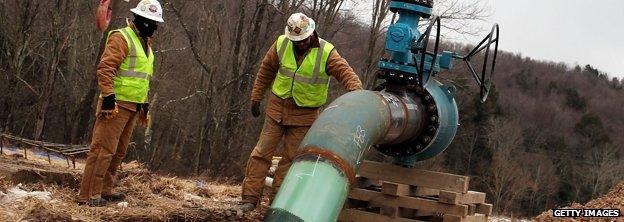
Fracking is shorthand for hydraulic fracturing and refers to how the rock is broken apart by high a pressure mixture.
Fracking allows drilling firms to access difficult-to-reach resources of oil and gas.
In the US it has significantly boosted domestic oil production and driven down gas prices.
Opponents say the process releases potentially carcinogenic chemicals into nearby groundwater.
The industry suggests pollution incidents are the results of bad practice, rather than an inherently risky technique.

Holyrood currently has power over planning issues but the Smith Commission, external had recommended devolution of onshore licensing and mineral access rights.
However, those new devolution powers would not come to Scotland before May's election.
Reacting to the coalition government's offer, SNP minister Mr Ewing said: "This decision is a victory for common sense and shows how devolution of energy policy leads to different policy outcomes in Scotland.
"It is a vindication of the Scottish government's continued objections to UK government plans to remove the right of Scottish householders to object to unconventional oil and gas drilling under their home.
"We're glad the UK government has finally taken this on board - especially as 99 per cent of respondents to their own consultation also opposed the move."
- Published15 August 2014
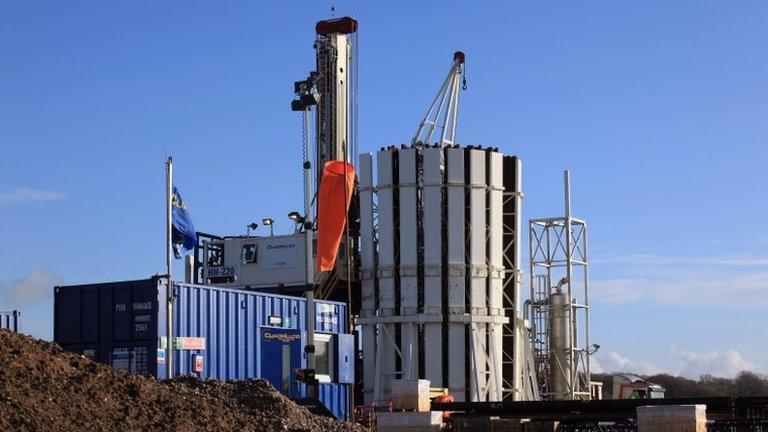
- Published30 June 2014
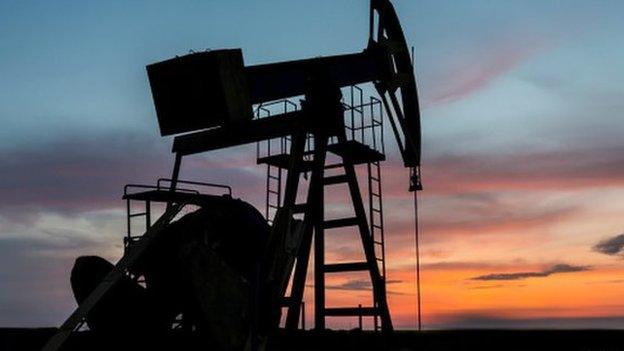
- Published13 December 2012
